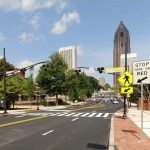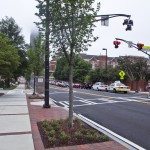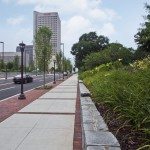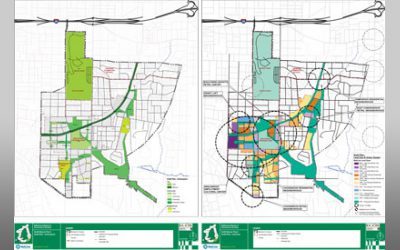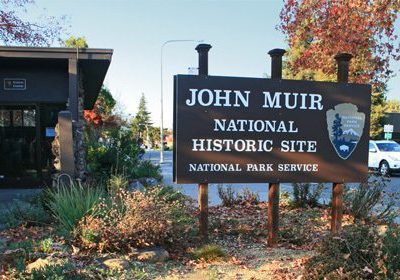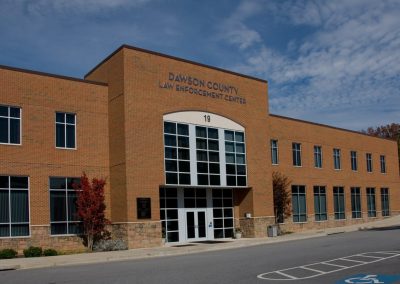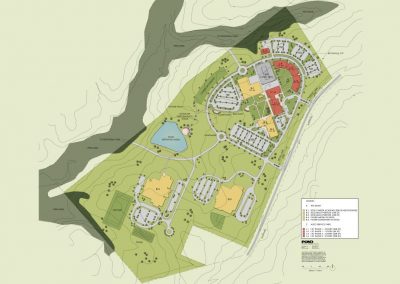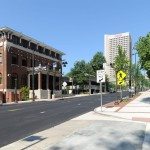North Avenue Corridor Improvements - Georgia Institute of Technology - Atlanta, GA
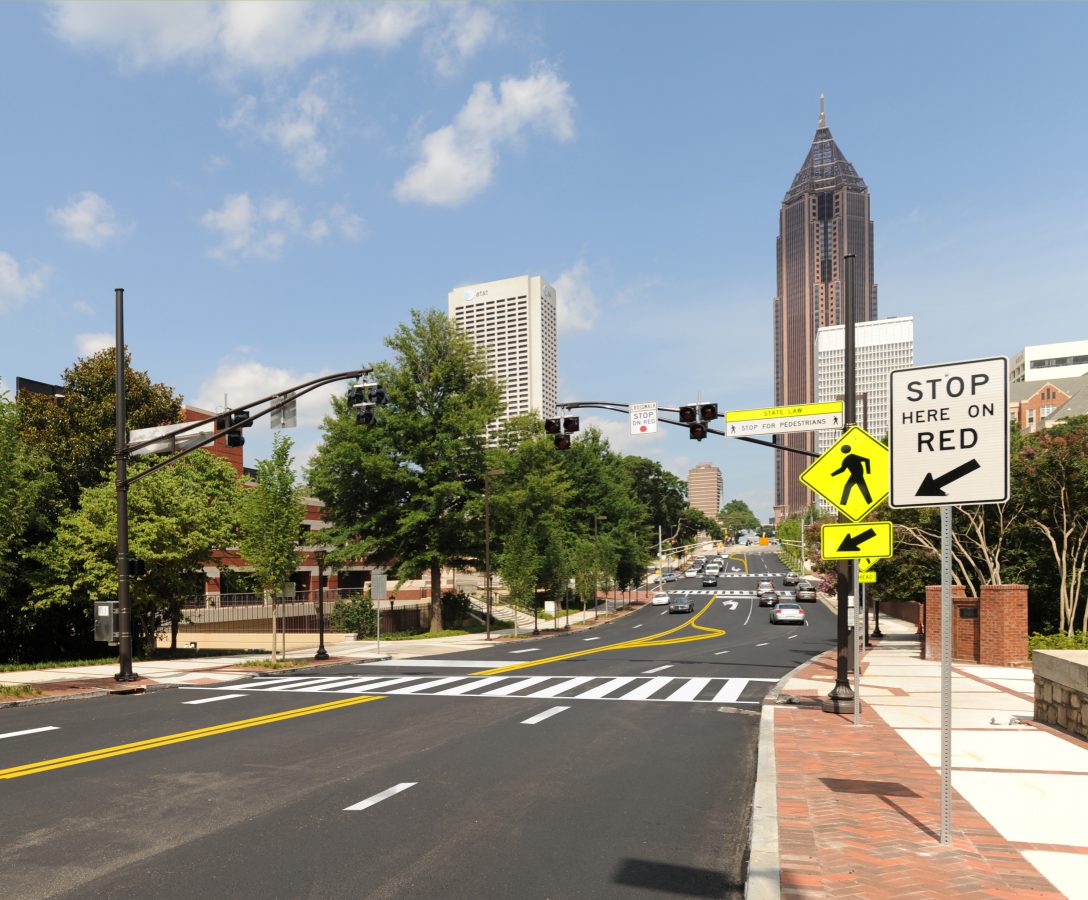
Pond has worked with Georgia Tech to develop a corridor master plan for the purposes of unifying the street interface, improving pedestrian safety and opening up views into the campus from the street. The corridor handles increasingly large crowds of students, visitors, and staff who are on the move between major campus housing facilities, administrative offices, and classroom facilities. The streetscape contained narrow sidewalks and barriers that contributed to a ‘walled off’ nature along the campus interface.
These physical conditions, combined with concerns for pedestrian safety, provided a strong reason for reassessing the nature and function of the corridor streetscape and pedestrian crossings. Design features include implementing the first Pedestrian HAWK mid-block crosswalk signal in the City of Atlanta, providing brick and concrete patterned sidewalks, adding a seamless network of street trees and street lights, incorporating natural stone materials for retaining walls and removing visual barriers and overhead power lines along the corridor.
Sustainable design features include incorporating vegetated bio-swales and a below-ground detention system at the visitor’s parking lot adjacent to the corridor to capture and treat stormwater. Pervious pavers were installed outside the right-of-way where allowable by code and ornamental security fencing was salvaged and restored for re-use. The streetscape treatment will aid in campus identity along the corridor by adding unity and providing a safe environment for pedestrians.
Pond received the 2014 Merit Award from American Council of Engineering Companies (ACEC) Tristate American Society of Landscape Architects (ASLA).
Related Projects
Related News
No Results Found
The page you requested could not be found. Try refining your search, or use the navigation above to locate the post.
Pond has worked with Georgia Tech to develop a corridor master plan for the purposes of unifying the street interface, improving pedestrian safety and opening up views into the campus from the street. The corridor handles increasingly large crowds of students, visitors, and staff who are on the move between major campus housing facilities, administrative offices, and classroom facilities. The streetscape contained narrow sidewalks and barriers that contributed to a ‘walled off’ nature along the campus interface.
These physical conditions, combined with concerns for pedestrian safety, provided a strong reason for reassessing the nature and function of the corridor streetscape and pedestrian crossings. Design features include implementing the first Pedestrian HAWK mid-block crosswalk signal in the City of Atlanta, providing brick and concrete patterned sidewalks, adding a seamless network of street trees and street lights, incorporating natural stone materials for retaining walls and removing visual barriers and overhead power lines along the corridor.
Sustainable design features include incorporating vegetated bio-swales and a below-ground detention system at the visitor’s parking lot adjacent to the corridor to capture and treat stormwater. Pervious pavers were installed outside the right-of-way where allowable by code and ornamental security fencing was salvaged and restored for re-use. The streetscape treatment will aid in campus identity along the corridor by adding unity and providing a safe environment for pedestrians.
Pond received the 2014 Merit Award from American Council of Engineering Companies (ACEC) Tristate American Society of Landscape Architects (ASLA).

